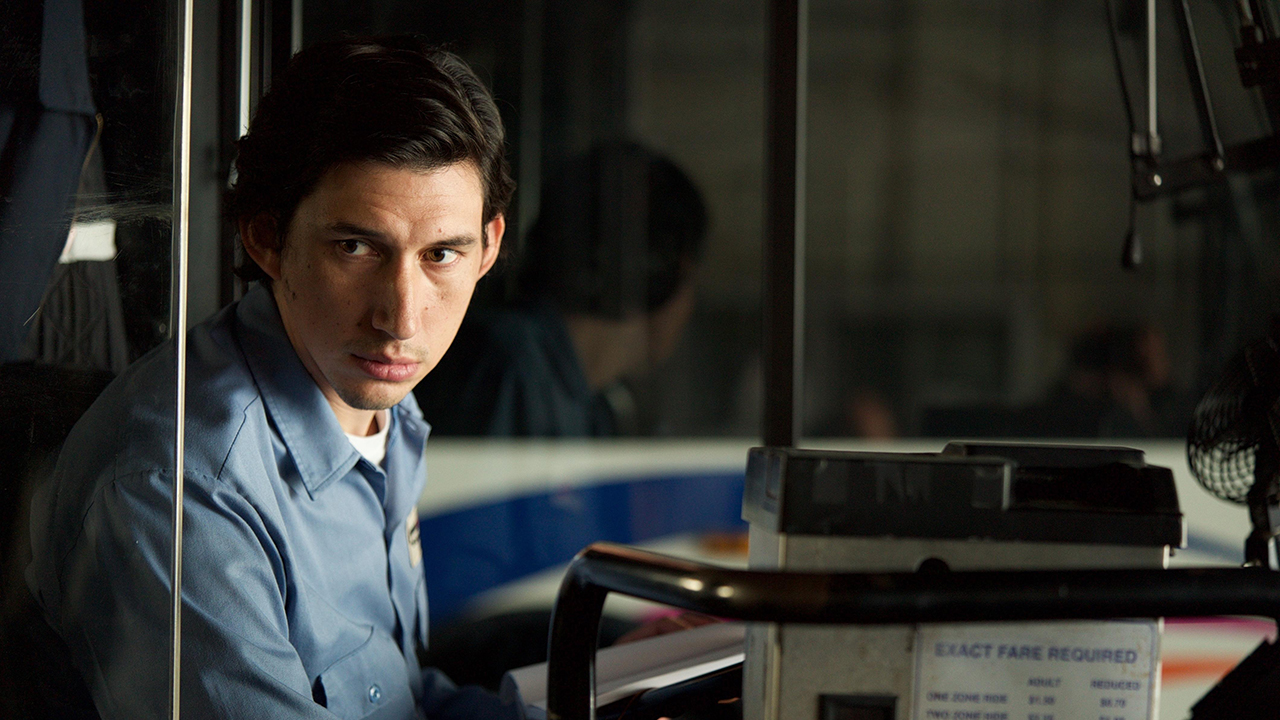Paterson reaction: Cannes 2016

Adam Driver plays a bus driver. He’s called Paterson and he lives and works in Paterson, New Jersey. And that is just the start of the patterns, echoes and internal rhymes that run throughout Jim Jarmusch’s latest film, its supple rhythms making it something of a cine-poem as it follows the ebb and flow of one week in one man’s highly ritualised life. Given Paterson is a poet who turns his daily experiences into plain, graceful prose, such formal exactitude might be smug and distancing were not the cadences so soft and loose.
Each morning Paterson’s body clock awakens him between 6 and 6.30, ready to eat his cereal out of a glass, walk to the bus depot, board the number 23, scribble some verse in his treasured notebook, and drive his route. When his shift is over, he walks home, has a home-cooked tea prepared by his wife Laura (Golshifteh Farahani), hears of her day, walks their English bulldog Marvin, and has a beer at the same corner bar.
Infused with tranquillity and warmth by Driver (he clearly got rid of all his anger playing Kylo Ren), Paterson is a likeable presence to hang out with. He talks little but listens plenty, earwigging on passenger conversations when behind the wheel and open to entering (one-sided) dialogues in the bar. He seems genuinely agreeable to Laura doing most of the chatting at home, and nods along to her accounts of her many projects and dreams (she is forever painting the house in her favoured black-and-white colour scheme, makes cupcakes to sell at the farmers’ market, and orders a guitar so that she might become a country star).
For a while it is unclear whether Paterson and Laura and their homespun ways are the object of some rather mean-spirited joke on the part of Jarmusch, who is, after all, cinema’s ultimate hipster. Nothing could be further from the truth: Paterson’s poetry is touched with the economy and clarity exhibited by his hero Williams Carlos Williams, who also hailed from Paterson, and Laura displays talent at everything she does. Their marriage is uncomplicated and happy, each unthreatened by the other’s independence and accepting of their idiosyncrasies.
Fully functional, loving marriages on screen are a rare thing, and so are portraits of an artist who is questioning, as all artists must be, but content, and who finds comfort, not neuroses, in solitude. It makes for a gentle, genial film that is a pleasure to get lost in.
Bringing all the latest movie news, features, and reviews to your inbox
Jamie Graham is the Editor-at-Large of Total Film magazine. You'll likely find them around these parts reviewing the biggest films on the planet and speaking to some of the biggest stars in the business – that's just what Jamie does. Jamie has also written for outlets like SFX and the Sunday Times Culture, and appeared on podcasts exploring the wondrous worlds of occult and horror.


